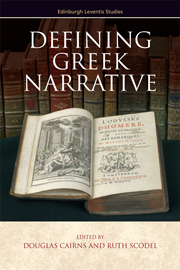Book contents
- Frontmatter
- Contents
- Preface
- Notes on Contributors
- 1 Introduction
- PART I DEFINING THE GREEK TRADITION
- 2 Beyond Auerbach: Homeric Narrative and the Epic of Gilgamesh
- 3 Homeric Battle Narrative and the Ancient Near East
- 4 Narrative Focus and Elusive Thought in Homer
- 5 Structure as Interpretation in the Homeric Odyssey
- PART II THE DEVELOPMENT OF THE GREEK TRADITION
- PART III BEYOND GREECE
- Bibliography
- Index
3 - Homeric Battle Narrative and the Ancient Near East
from PART I - DEFINING THE GREEK TRADITION
Published online by Cambridge University Press: 05 September 2014
- Frontmatter
- Contents
- Preface
- Notes on Contributors
- 1 Introduction
- PART I DEFINING THE GREEK TRADITION
- 2 Beyond Auerbach: Homeric Narrative and the Epic of Gilgamesh
- 3 Homeric Battle Narrative and the Ancient Near East
- 4 Narrative Focus and Elusive Thought in Homer
- 5 Structure as Interpretation in the Homeric Odyssey
- PART II THE DEVELOPMENT OF THE GREEK TRADITION
- PART III BEYOND GREECE
- Bibliography
- Index
Summary
How do we define ancient Greek narrative? The theme of this volume, and the conference on which it is based, is more than a timely one. Thanks to the efforts of many scholars – Walter Burkert and Martin West above all – classicists now take very seriously the role of comparative study in helping to illuminate the culture of early archaic Greece, usually by listing apparently parallel phenomena in the many civilisations of the ancient Near East (hereafter ANE). Whilst the broadening of horizons in this way must be a welcome development, not all of the new vistas are equally fair, and some are so tempting as to have distracted us from the task at hand. As Robin Osborne observed some time ago, ‘[i]t is worth stopping to ask what is really at stake here … If I choose to disagree with with that claim [i.e. of a parallel], what is at stake? … What is really at stake is my ability to understand the Iliad.’ These stakes were then famously upped by Sarah Morris's claim that ‘in the final analysis, it may be a greater challenge to isolate and appreciate what is Greek in Homeric poetry than to enumerate its foreign sources’. The current chapter takes up that challenge, and suggests that ANE texts should not be treated as direct source material for the Iliad and Odyssey.
- Type
- Chapter
- Information
- Defining Greek Narrative , pp. 29 - 54Publisher: Edinburgh University PressPrint publication year: 2014



